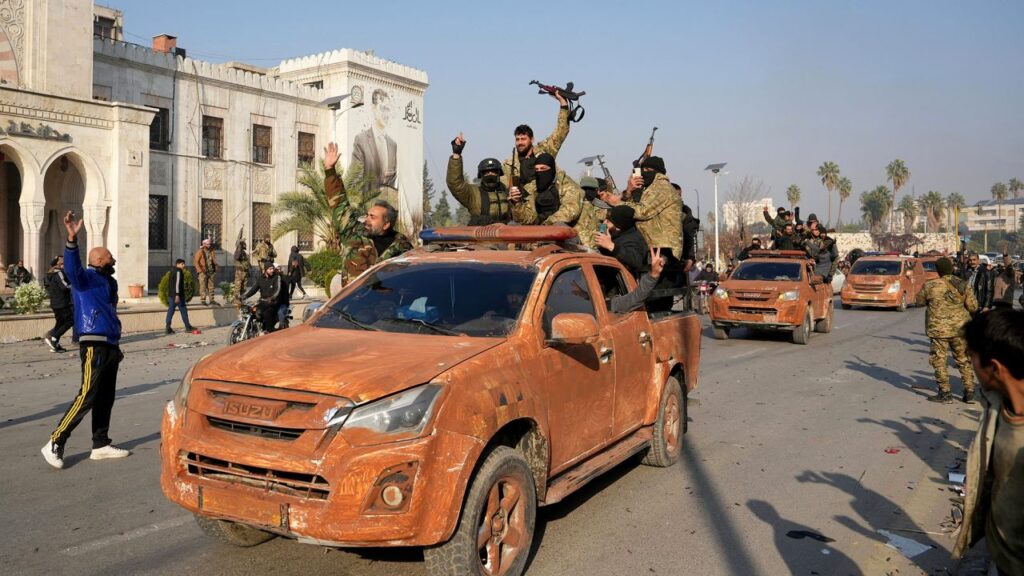Syrian Sunni-led Islamist rebels, who recently overthrew President Bashar al-Assad, visited Qardaha, the Alawite hometown of the former leader, and gained backing from local elders on Monday. Residents viewed this as a promising step towards fostering tolerance in post-Assad Syria.

Delegates from Hayat Tahrir al-Sham (HTS) and the Free Syrian Army (FSA)—groups once labeled as terrorists by Assad—held discussions with religious leaders and elders in Qardaha. Following the meeting, the elders signed a statement pledging support for the new regime and called for national unity.
The signed document emphasized Syria’s religious and cultural diversity, urging swift restoration of state services and the peaceful disarmament of Qardaha’s residents.
Qardaha, traditionally loyal to the Assad family, was a hub for funerals during Syria’s 13-year civil war due to high casualties among pro-Assad fighters. The elders’ decision to support the rebels marks a profound shift.
“We affirm the unity of Syria and its cultural diversity,” the statement read. Residents reported that the meeting alleviated local fears of retribution, reinforcing trust in the rebels’ pledge to protect minority rights.
While HTS has faced international scrutiny as a terrorist organization, its leadership has projected an image of moderation. HTS leader Abu Mohammed al-Golani previously argued the group poses no external threat, urging reconsideration of its terror designation.
The rebels’ peaceful handling of Qardaha aligns with similar efforts in cities like Aleppo as they advanced towards Damascus. Nonetheless, concerns linger among Syria’s minorities about potential persecution or marginalization.
Following the rebels’ arrival, residents dismantled a statue of Hafez al-Assad, Bashar’s father, and looted the late leader’s mausoleum. Witnesses described the looting as a reflection of widespread frustration in the impoverished region.
As the rebels solidify control, discussions are emerging internationally. A British minister stated the UK is reviewing HTS’ terrorist designation.
This milestone in Qardaha highlights the complex challenges of transitioning to peace and inclusivity in a nation fractured by years of conflict.



